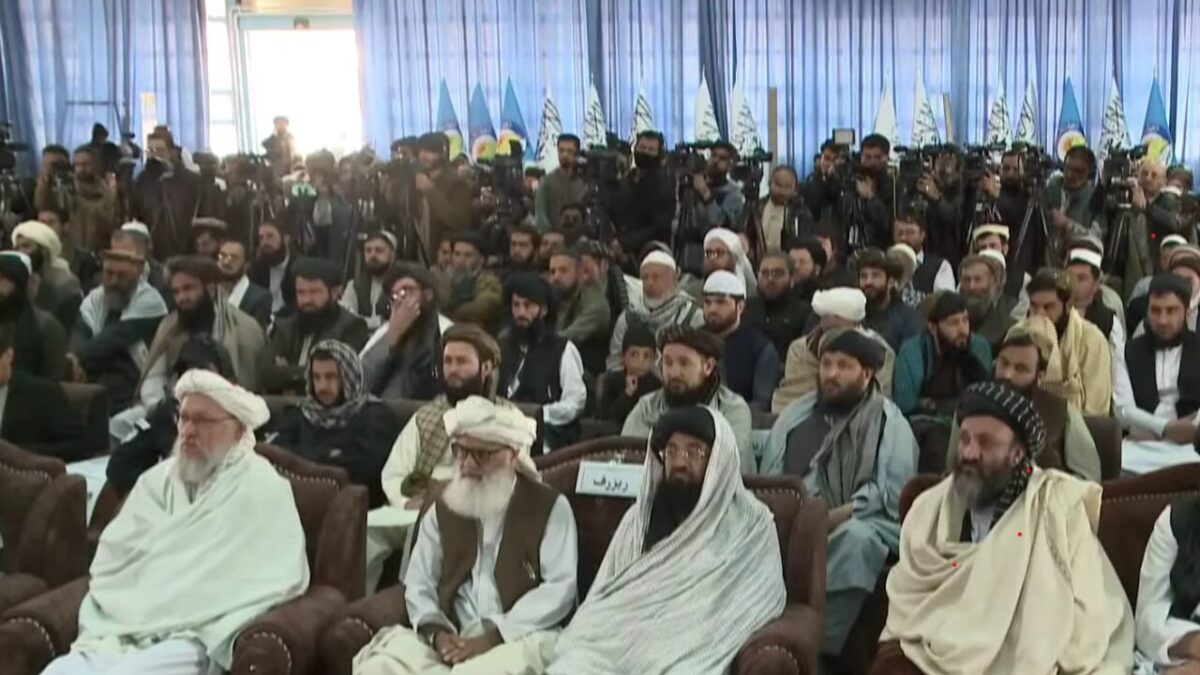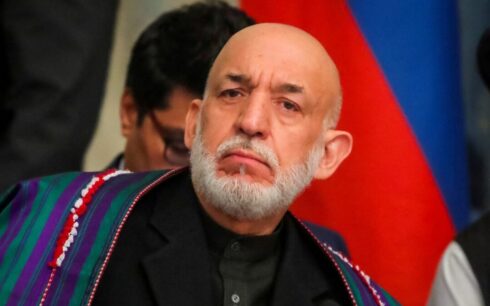The U.N. Special Rapporteur on the situation of human rights in Afghanistan, Richard Bennett, has stated in a report to be presented next week to the U.N. Human Rights Council that the Taliban’s claim to be “protecting” the rights and dignity of women and girls instead serves “as a mechanism for subjugation rather than safety—one that asserts male dominance and effectively erases women and girls from public life.”
“Justice and protection under the Taliban have become instruments of domination—designed to entrench power, silence opposition, and control the lives of Afghans through fear and repression,” Bennett wrote.
The report asserts that the Taliban justify their approach to justice by claiming it is grounded in Sharia law, a pillar of their stated aim to establish an Islamic Emirate. However, Islamic scholars and legal experts consulted by the Special Rapporteur consistently raise concerns about the Taliban’s interpretation of Sharia, describing it as “unparalleled in other Muslim-majority states” and not in accordance with either Islamic principles or jurisprudence.
“Religious scholars point to the Taliban’s selective, distorted, or decontextualized use of Hanafi sources and the failure of the Taliban’s justice system to adhere to key principles of mercy, due process, and evidentiary rigor which are foundational in Sharia,” the report states.
Afghanistan lacks standardized court procedures
The report also details the transformation of the country’s judicial system under Taliban rule, noting that there are currently no standardized processes for court proceedings.
While some judicial structures from the former Republic—such as primary, appellate, and supreme courts—remain in place, the report says they have been repurposed to serve “the Taliban’s ideological model of governance and control.”
According to the report, Taliban-controlled courts now operate under an extreme interpretation of Sharia, which undermines consistency, fairness, and legal safeguards.
All Taliban judges are men, mostly from one ethnic group
Bennett writes that all judges appointed under the previous government, including approximately 270 women, have been dismissed and replaced by Taliban-affiliated men—most of whom are ethnic Pashtuns.
“Taliban judges lack professional legal training and issue decisions based on Taliban-issued edicts rather than established legal principles,” the report says.
The judiciary is further supported by muftis and court clerks (muharers), who are appointed primarily based on Taliban affiliation. Muftis—Islamic scholars assigned to advise judges—hold wide and subjective powers to interpret Sharia and issue religious rulings.
The report cites consistent bias in cases involving Taliban-affiliated individuals and notes that appellate courts routinely uphold primary court rulings, regardless of merit or legal basis.
“The result is the creation of a Taliban-controlled judicial system characterized by a profound lack of independence, mistrusted by large parts of the population, and the inconsistent, arbitrary, and often discriminatory application of Taliban-imposed laws and edicts,” the report says.
Taliban expanding reach of morality police
The report also raises alarm over the growing influence of the Taliban’s Ministry for the Propagation of Virtue and the Prevention of Vice (PVPV), calling it a concerning development in the enforcement of Taliban rule.
“There are very few women serving in the de facto police, and specialized police units addressing gender-based violence are no longer in effect, further limiting safe channels for women and girls to report abuse or seek legal protection,” Bennett writes.
According to the report, the PVPV ministry operates without judicial oversight. Its officials—muhtasibs—hold sweeping authority to identify and punish perceived infractions of Taliban-imposed moral codes, particularly under the PVPV Law. The report adds that there is no legal mechanism available to challenge their decisions.
Taliban replace Attorney General’s Office with edict enforcement body
The report says that the Taliban have also overhauled law enforcement mechanisms, eliminating the Attorney General’s Office in 2023 and replacing it with the Directorate of Supervision and Prosecution of Decrees and Orders, which enforces Taliban-issued edicts.
According to the report, this shift has placed quasi-judicial authority in the hands of a broad array of Taliban actors, including the de facto police, the General Directorate of Intelligence, muhtasibs, and local officials. These entities are now responsible for interrogating suspects, determining guilt, and carrying out punishments—often within the span of a single day.
“This ad hoc system lacks avenues to appeal decisions or procedural safeguards and has led to widespread violations of due process and fair trial rights,” the report says.
Women’s absence has severely weakened the justice system
The report also underscores that the removal of women from Afghanistan’s justice sector has had profound and far-reaching consequences.
“Under the Republic, hundreds of women served as judges, prosecutors, defense lawyers, and legal aid providers. They played a vital role not only in strengthening the justice system but also in defending the rights of women, girls, and marginalized groups,” the report notes.
Today, there are no female judges or prosecutors, and no officially registered female lawyers. This absence has deprived women and girls of secure avenues to report abuse or seek redress.
Compounded by the lack of female police and administrative officials, the result has been widespread underreporting of violence and discrimination. Many former women legal professionals have faced threats and harassment; some have fled the country, while others—especially those who were the primary earners in their households—have been plunged into economic hardship.
Despite these challenges, some women lawyers continue to offer informal legal support, preparing cases and providing advice outside of judicial channels. In some cases, they even accompany clients to court, although they do so without official recognition.
Taliban justice system embedded in gender-based persecution
Bennett situates these developments within a broader context of systematic gender-based discrimination under Taliban rule.
“Discussions about justice and protection for women and girls under Taliban rule are framed by the widespread, systematic, and institutionalized system of gender-based discrimination and exclusion enforced since 2021,” he writes.
The report reiterates that the Taliban’s deprivation of women and girls’ fundamental rights amounts to crimes against humanity on the grounds of gender. A growing international movement—led primarily by Afghan women and backed by the Special Rapporteur—has increasingly described the situation as one of gender apartheid.





